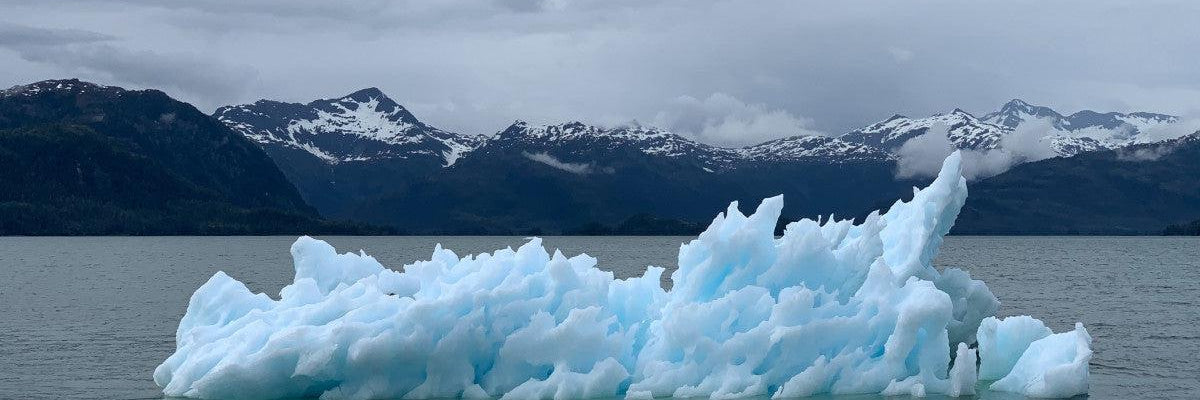Que dit le Rapport GIEC ? Quel engagement pour la planète ?
16 août 2021

C’est en ce lundi 9 aout 2021 que le rapport GIEC 2021 appelé "Changements climatiques 2021 : les bases scientifiques" a été publié. Les conclusions de ce rapport sont malheureusement peu réjouissantes.
Qu’est-ce que le GIEC ?
Le GIEC est le groupe d’experts intergouvernemental sur l’évolution du climat. Il a été créé en 1988 par deux institutions des Nations Unies. Ce groupe évalue depuis plus de 30 ans l’état des connaissances sur l’évolution du climat. Il fournit un état des lieux de la situation climatique. Il n’a pas pour but de prendre partie mais bien de communiquer un rapport sur la situation climatique en fonction des informations scientifiques que l’on détient, pour mieux comprendre les risques liés au changement climatique et les alternatives que l’on peut mettre en place pour l’atténuer.
Le GIEC ne fait pas de lui-même des recherches. Beaucoup conteste la véracité des informations qu’il communique, mais une chose est sûre : les évaluations du GIEC sont fondées sur des publications scientifiques dont la valeur est très largement reconnue.
Que nous dit le rapport publié ce lundi 9 août 2021 ?
Le 9 août 2021, le GIEC a publié la première partie de son rapport. Il est le résultat de la synthèse de 14 000 études scientifiques, et c’est 234 auteurs qui ont travaillé sur ce rapport.
Ce rapport met en avant de manière irréfutable que les changements climatiques que l’on connaît, sont le résultat de l’activité humaine (même si l’on s’en doute depuis des années). Ce rapport confirme la gravité de la situation.
Ainsi les événements climatiques (inondations, incendies, sécheresses, vagues de chaleurs, tempêtes etc), auxquels on assiste depuis plusieurs années déjà et qui s'accentuent au fil du temps, sont bel et bien le résultat de l’activité humaine.
Élément important : c’est le premier rapport qui prend en compte les points de basculements (autrement appelés points de non retour). C’est-à-dire un seuil qui, s'il est dépassé, va être responsable de grands changements au niveau climatique. On parle aussi de phénomène d’emballement. Parmi ces événements, on y retrouve la fonte de la calotte glaciaire, la modification des cours marins ou encore le dépérissement des forêts.
Le rapport montre aussi que les forêts, sols et océans vont avoir encore plus de mal à absorber les émissions de CO2, alors que ces dernières n’ont jamais été aussi élevées depuis 2 millions d’années, atteignant 410 parties par million en 2019.
Il est aussi spécifié que le seuil des +1,5 degrés serait atteint d’ici à 2040, et que celui des +2 degrés serait atteint, selon 3 scénarios, au milieu du siècle. L’objectif des accords de Paris de limiter la hausse des températures à 2 voir 1,5 degrés ne serait donc pas respecté.
Les conséquences de cette hausse des températures ?
Au-delà de la persistance des événements climatiques extrêmes comme cité auparavant, les villes côtières vont avoir à faire à une élévation du niveau de la mer et donc à des inondations plus fréquentes et plus graves et l’on se rapproche de plus en plus du niveau de tolérance critique par rapport à la santé humaine.
Selon Alok Sharma, le président de la COP26, le rapport du GIEC est : "l'avertissement le plus sévère jamais lancé sur le fait que le comportement humain accélère de manière alarmante le réchauffement climatique".
Le dernier rapport du GIEC qui résume les trois parties est attendu pour l'automne 2022.
Qu’en est-il aujourd’hui ?
On le sait : le dérèglement climatique est déjà là, et ses conséquences sont déjà bien présentes partout sur terre. On l’a vu aussi vu cet été : pas besoin d’aller bien loin pour observer de fortes inondations (en Allemagne et Belgique mais aussi en Chine), mais aussi des chaleurs extrêmes qui provoquent des incendies ravageant l’Amérique du Nord et certains pays méditerranéen.
L’activité humaine a donc bel et bien des conséquences sur l’ensemble des régions terrestres.
Même si ce rapport n’est pas très positif, pour le moment il reste encore de l’espoir : il est possible de réduire le réchauffement climatique et ses conséquences. Comme le dit la coprésidente du groupe 1 du GIEC "Si l'on réduisait fortement, rapidement et durablement les émissions de gaz à effet de serre, on en verrait les bénéfices dans 10 ou 20 ans". Beaucoup de scientifiques s’accordent à dire que la solution est de changer drastiquement nos modes de vies et les politiques intérieures des pays. Des prises de décisions fortes et sur le long terme semble être les seules issues possibles qui se dessine pour l’avenir.
Et les entreprises ?
L’appel est également lancé pour les entreprises : il est primordial de réduire l'empreinte carbone et de se tourner vers une économie verte et plus responsable.
Chez Elia, nos engagements sont nos valeurs. Depuis nos débuts, nos culottes menstruelles sont certifiées bio et Origine France Garantie. Nous encourageons le savoir-faire et une production locale pour réduire nos émissions de CO2.


Commentaires